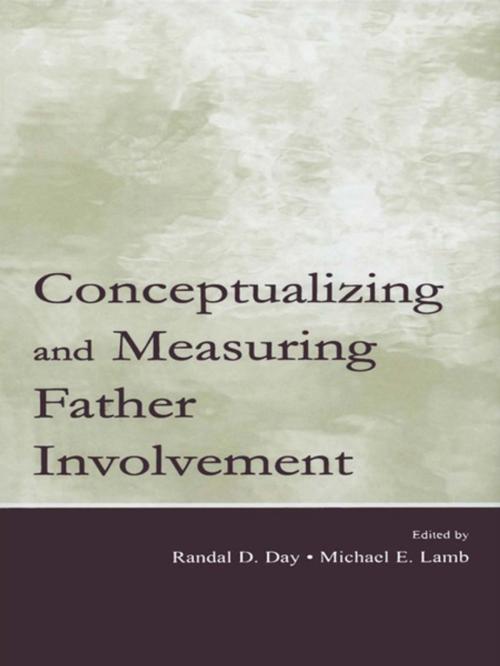Conceptualizing and Measuring Father Involvement
Nonfiction, Health & Well Being, Psychology, Developmental Psychology, Mental Health| Author: | ISBN: | 9781135629663 | |
| Publisher: | Taylor and Francis | Publication: | October 3, 2003 |
| Imprint: | Routledge | Language: | English |
| Author: | |
| ISBN: | 9781135629663 |
| Publisher: | Taylor and Francis |
| Publication: | October 3, 2003 |
| Imprint: | Routledge |
| Language: | English |
After decades of focusing on the mother's role in parenting, family studies researchers have turned their attention to the role of the father in parenting and family development. The results shed new light on childhood development and question conventional wisdom by showing that beyond providing the more traditional economic support of the family, fathers do indeed matter when it comes to raising a child.
Stemming from a series of workshops and publications sponsored by the Family and Child Well-Being Network, under the federal fatherhood initiative of the National Institute of Child Health and Development, this comprehensive volume focuses on ways of measuring the efficacy of father involvement in different scenarios, using different methods of assessment and different populations. In the process, new research strategies and new parental paradigms have been formulated to include paternal involvement. Moreover, this volume contains articles from a variety of influences while addressing the task of finding the missing pieces of the fatherhood construct that would work for new age, as well as traditional and minority fathers. The scope of this discussion offers topics of interest to basic researchers, as well as public policy analysts.
After decades of focusing on the mother's role in parenting, family studies researchers have turned their attention to the role of the father in parenting and family development. The results shed new light on childhood development and question conventional wisdom by showing that beyond providing the more traditional economic support of the family, fathers do indeed matter when it comes to raising a child.
Stemming from a series of workshops and publications sponsored by the Family and Child Well-Being Network, under the federal fatherhood initiative of the National Institute of Child Health and Development, this comprehensive volume focuses on ways of measuring the efficacy of father involvement in different scenarios, using different methods of assessment and different populations. In the process, new research strategies and new parental paradigms have been formulated to include paternal involvement. Moreover, this volume contains articles from a variety of influences while addressing the task of finding the missing pieces of the fatherhood construct that would work for new age, as well as traditional and minority fathers. The scope of this discussion offers topics of interest to basic researchers, as well as public policy analysts.















